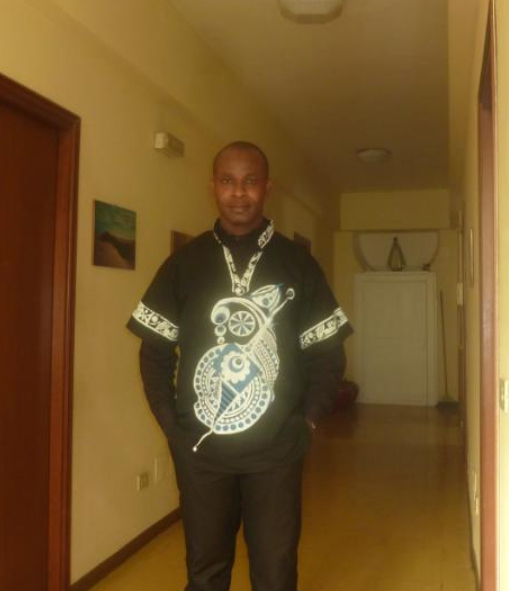Sunday, August 8, 2021
Nineteenth Sunday in Ordinary Time
First Reading: 1 kings 19: 4-8
Second Reading: Ephesians 4:30-5:2
Gospel: John 6:41-51
The Gospel today continues our reading of chapter 6 of John’s Gospel which we started two Sundays ago. Jesus is giving one of His most glorious and profound teachings. It was a teaching on the Most Holy Eucharist, the gift of His Body and Blood for our eternal salvation. It will appear John is repeating Himself, but John wants to lead us slowly deeper into the mystery of the sign of the multiplication of loaves. The new element to the discourse on bread is wine. To the image of food, Jesus adds wine so that we now have flesh and blood. Here the eucharistic symbolism reaches its culmination and totality.
It may be nice to remember again, that the Exodus story is the dominant motif behind John’s telling of the miraculous multiplication of loaves. He tells us that it was shortly before the Jewish feast of Passover (6:4). This is the interpretative key that will help us to understand the mystery that is unfolding in John chapter 6. Jesus, choosing this most sacred time to teach His disciples that He is the bread that comes down from heaven is very instructive and made a deep impression on His disciples. This will become even clearer when He will again choose the Passover feast to institute the Eucharist.
Why did Jesus choose bread and wine to signify His Body and Blood? True they were fairly common, but was that the reason? Couldn’t He have used something else? Jesus being God could have established His enduring presence through anything in creation like figs or lettuce. While primarily connected to the Jewish celebration of Passover, the choice of bread and wine has even more symbolism. Throughout the Old Testament, God prepared His people for the solemn moment in history when Jesus His Incarnate Son will institute the Most Holy Eucharist. In the Old Testament bread and wine were offered to God in sacrifice. In Genesis 14: 18, we read that Melchizedek, the king of Salem brought bread and wine for he was the priest of the most high God. In the context of the Passover celebration, the unleavened bread acquired a new significance commemorating their freedom from slavery in Egypt.
Then came manna in the wilderness which enriched the bread symbolism as food for the journey. This is the idea we see in the first reading today. Elijah was on his way to the mountain of God. After a day’s journey into the desert, he became tired. He could not continue. He even begged God to take his life but God sent an angel to give him food for the journey. After eating, he was enabled to walk forty days and forty nights to the mountain of God. Just as manna nourished and strengthened Israel in the desert on their way to the promised land, and Elijah on his way to the mountain of God, the same way, Jesus our bread of life and our food for the journey nourishes and strengthens us on our journey to our heavenly homeland.
So, why did He use wine to symbolize His Blood? Was it just because of the color? Blood highlights the covenant character of the Eucharist. The old covenant was sealed in the blood. The same way, the New Covenant is sealed in blood, not the blood of animals as with the old but with the Blood of Jesus Christ Himself. Hebrews 10: 28 says, “anyone who sinned against the law of Moses died without mercy on the testimony of two or three witnesses. Verse 29 questions, ‘how much more severely do you think someone deserves to be punished who treats as unholy thing the blood of the covenant that sanctified them?’
The blood also evokes memories of the blood of the immaculate lamb that was smeared on the doors of the Israelites to protect them from the angel of death in Egypt. So, why did Jesus use wine to symbolize His Blood? Wine symbolizes celebration and delight. It symbolizes festive joy so that the Holy Eucharist is a joyful celebration. Jesus multiplied bread to satisfy the need of the people but He multiplied wine for the delight of the bridegroom and his guests at Cana. Psalm 104; 15 says, “wine gladdens the heart and bread strengthens it.”
The bread that becomes the Body of Christ is the fruit of the earth and work of human hands. The wine that becomes the Blood of Christ is the fruit of the vine and work of human hands. The same way, Jesus insists that seeking Him until one finds Him is a free gift which on one can obtain through his own effort but everyone must work and try to be well disposed of receiving it. Man’s deepest hunger is to live forever and to see God. Nothing and nobody can satisfy this hunger but Jesus. He alone has seen the Father whom He has come to reveal to us. In John 14: 9 “He who has seen me has seen the Father.” Let us dear friends be thankful to God always for in Christ He has revealed Himself to us and in the Holy Eucharist, He has given us Himself as our pledge of eternal life.

Rev. Fr. Chidi Onwuka M.Ss.Cc
